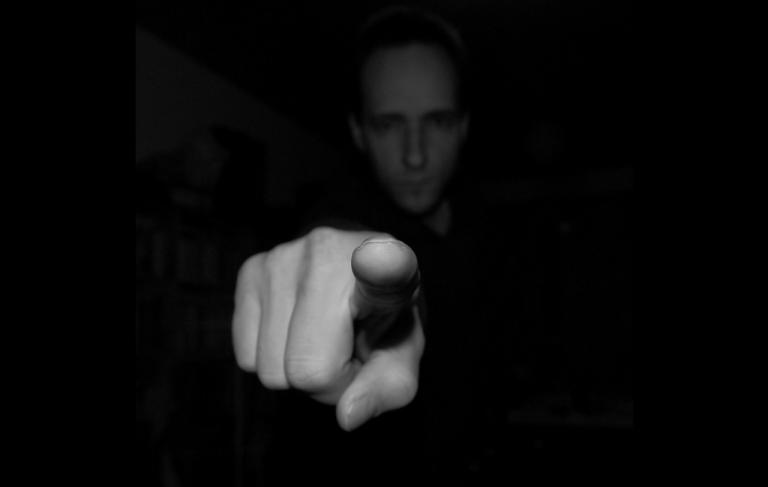Over the past couple of days I’ve been trying to develop a more sober response to Jim Russell’s piece over at Crisis. In the meantime, the publication of Ashley Madison’s data caused yet another scandal to fall over the Duggar family. In my head, these two things are connected.
How? They are two sides of the same coin. On the one hand, a Christian publication suggests that no one who experiences same-sex attraction should be allowed to speak in public unless they meet an impossibly high standard of orthodoxy and behaviour. On the other hand, a family that was famed for meeting an impossibly high standard of Christian modesty and openness to life is racked by scandal, and a man who has publicly worn exactly the kind of face that the orthodoxy police desperately want to see turns out to be an adulterer.
Duggar publicly apologized, calling himself “the biggest hypocrite ever.” This is probably a bit of an overstatement, but I do think that it’s an opportunity to talk about the kind of low-level, everyday hypocrisy that we encounter within Christian communities – the little way of dishonesty and self-concealment that produces a culture of scandal.
Put simply, Christian purity culture penalizes honesty. There’s a very specific style of testimonial that we are supposed to offer: one in which we are former sinners saved by the love of Jesus. We experience no doubt, no confusion. We have no questions. We’re humble enough, of course, to realize that we will sin again and that we stand in constant need of God’s grace. But our sins are either in the past, or in the future. For the present, we’re basically saints.
This is fine if the only kind of witness that we hope to have in the Church is the “fifteen minutes of fame” kind. Everyone goes through occasional periods in their spiritual life where they really do fit the bill, and if we just wait for those moments to get up in public and give our testimonial then we can both tell the truth and achieve a very high standard of edifying perfection.
There’s only problem with this plan, which is that it involves our entire community behaving in a fundamentally dishonest way. It means silencing our communal struggles, erasing our communal sins. And of course it doesn’t work. Cover-ups are one of the best ways of making a scandal really blow up in your face.
The truth is that nobody wants a series of one-off presentations from folks who have a moment of holiness, step into the limelight, and then retire back to their sins. People want role models. Leaders. Folks who have the courage to be out in the public eye for a long time, and who will offer not just their best moments, but their entire lives.
What this means, in practice, is that we create a kind of Christian celebrity culture which is, in some ways, just as predatory as secular celebrity culture. We build pedestals, invite people to get up on top of them, groom them to give the right kind of testimony, praise them for it, and then stand around at the bottom waiting for them to make a mistep. As soon as they show any sign of being an actual ordinary human being, we throw things at them, call them names, and try to bring them down.
So people learn to be fake. They learn to hide. They learn to pretend to be the perfect saintly figure in public. They learn to whiten their sepulchres. And in the process, they cease to be accountable. Because here’s the thing: if you risk talking about your weaknesses, your doubts, your confusions, and your failures in public then there is a possibility of being corrected. There is also a very strong possibility that you’ll receive the support and solidarity that you need in order to resolve to once again begin with the pursuit of virtue.
On the other hand, if you try to pass yourself off as a perfect poster child, then for as long as you can get away with it your sins will likely get worse. Nobody knows about them. There’s nobody to correct you. Moreover, there are no consequences: you continue to reap the benefits of a virtuous reputation, while at the same time enjoying the pleasures of a sinful lifestyle. There’s no impetus to improve, and the fear of being found out and exposed often causes people in this situation to isolate themselves: you can’t ask for help and support, because what if your support network betrays you?
This is why I value authenticity so highly in Catholic public figures. It’s also why I get so angry and upset when people who almost never reveal anything about their personal lives, their private motivations, their secret struggles, or their own failings go picking on people who have the courage to be vulnerable and open in public. I see those people as cowards, sitting comfortably within the fortress and penning petty criticisms of the soldiers in the trenches. I see them as being like the well-fed officer who approaches the dirty war hero with a look of contempt and sniffs, “I hate to see a man who neglects to shine his shoes.”
Because being authentic is hard. It means daring to appear to be only human. It means talking about doubt. Revealing struggle. Sharing failure. It means climbing up atop the cross in full view of everyone, naked and exposed to contempt, and enduring the insults and mockeries of those who want their role models perfect and whole, buoyed up on the shoulders or angels, able to call on Elijah for instant miracles to free them from their distress. It means stumbling, falling, bleeding, crying out in fear that the Father has forsaken us. It means appearing in the company of criminals, and identifying with sinners.
I think that if we can learn anything from the scandal of the too-perfect leader with a closet of full of skeletons, it’s that the church needs fewer pre-fabricated saints and more role models whose lives manifest the scandal of the Cross.
Photo credit: Pixabay













